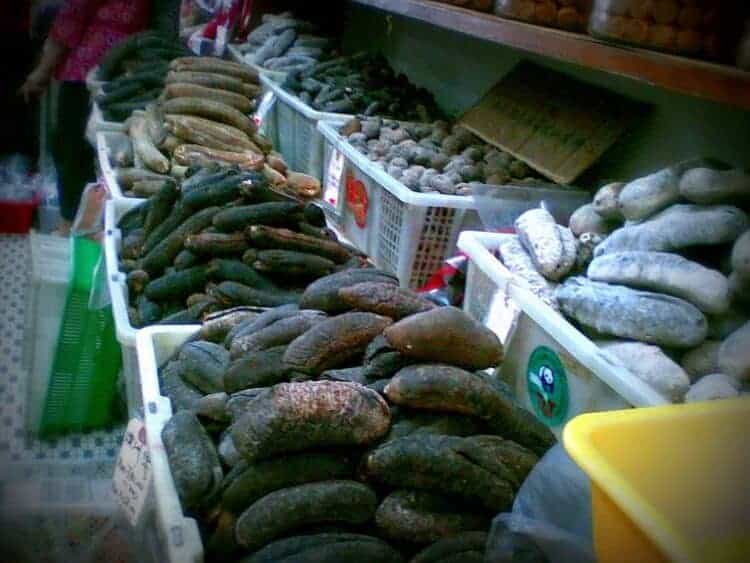via The Conversation, 29 November 2019: An interesting article about the music of Australia’s Yolŋu people, and how their songs hold memories of the trepang trade with seafarers from what is now Indonesia.
Long before the first Methodist missionaries arrived in northeast Arnhem Land at Milingimbi in 1923, the Yolŋu held extensive knowledge of their Southeast Asian neighbours. Some Yolŋu people even travelled to Makassar and made families with shared Makassan ancestry.
Makassan religion, culture, goods and seacraft are recorded in many Yolŋu ceremonies still practised today. In return for rights to harvest their resources, the Yolŋu received goods imported by the Makassans including rice, tamarind, tobacco, alcohol, cloth, axes and knives.
Consequently, Yolŋu languages still retain hundreds of Makassar and Bugis words including rrupiya (money), bandirra (flag), buthulu (bottle), lipalipa (canoe), and baŋ’kulu (axe). Many Yolŋu Manikay series also refer to these historical visitations extensively.
Accordingly, most Manikay series for the Dhalwaŋu clan homeland of Gurrumuru sing of Makassan exchanges through song subjects including yiki’ (knife), ŋarali’ (tobacco), manydjarrka (cloth), dhamburru (drum), djuliŋ (flute), dopulu (playing cards), ŋänitji (alcohol), barrundhu (drunken fighting), parrurru (flag), berratha (rice) and watjpalŋa (rooster). Other subjects sung by the Warramiri and Gumatj clans include wurramu (a ghost Makassan captain), djakura ga lanytja (kickboxing), waraliny (pipe smoking), wayathul’ (scrub fowl), Luŋgurrma (northerly trade wind) and djäpana (coral sunset).
Imams accompanied Makassan fleets to Australia and observations of Islamic practices were recorded in Yolŋu ceremonial law. The Wurramu mortuary ceremony, for instance, sings of offerings of thanks to Allah.

























